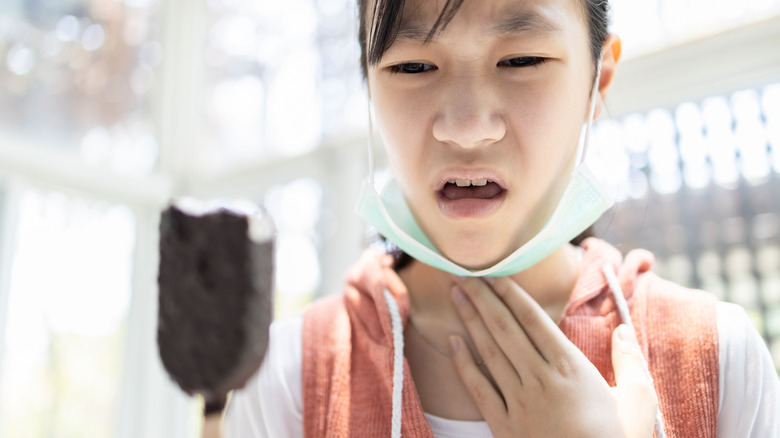Study Finds Stark Difference In Antibody Levels With COVID Survivors Who Lost Taste Or Smell
With 2023 right around the corner, it's hard to believe that we're three years into the global madness that has been the SARS-CoV-2 outbreak and COVID-19 pandemic. Several aspects of our lives have been changed, including our physical health, mental health, career and finances, and how we go about the world every day. While we all wish it wasn't the case, the SARS-CoV-2 virus — the organism that causes the disease COVID-19 — doesn't appear to be going away anytime soon. Researchers have been diligently at work trying to better understand the virus to bring the world back to some semblance of normal. The more research that's conducted on the virus, the more we learn about the evolving strains.
On a daily basis, it's easy to take our senses for granted, and the value of these abilities becomes more noticeable when we lose them. It might surprise you to learn that the senses of taste and smell are intricately linked, as our sense of smell also allows us to perceive the flavors of food (per BrainFacts). SARS-CoV-2 can affect the olfactory neurons in the brain that facilitate our sense of smell, according to NYU Langone Health. This could contribute to why someone suddenly can't smell their favorite perfume or cologne and why their dinner tastes lackluster when they have COVID.
To better understand the way that SARS-CoV-2 affects taste and smell, researchers have been investigating whether having the symptoms of loss of taste and smell after infection predicted an increased presence of antibodies after recovery.
Antibody levels linked to loss of taste and smell
The relationship between previously being infected with the SARS-CoV-2 virus and the existence of antibodies was examined in a recent study published in PLOS One. The researchers believe that studying this relationship is significant because it may lead to new diagnostic approaches and advanced COVID treatments, as noted by WebMD. During the study, volunteers who had recovered from COVID donated their plasma before their antibody levels were analyzed by the researchers. According to the Centers for Disease Control and Prevention (CDC), these blood tests can measure the presence of antibodies in those who have been vaccinated and individuals who have been infected with SARS-CoV-2.
Compared to those who didn't experience the symptom, the researchers discovered that participants who lost their senses of taste and smell appeared to display increased antibody levels. For those who did experience loss of smell after being infected with SARS-CoV-2, 71.6% were found to be antibody positive. Antibody-positive results were also found in 71% of people with a loss of taste. Additionally, the researchers found that the symptoms of loss of taste and smell were the only symptoms predictive of increased antibody levels; they didn't find this to be the case for the symptoms of fever, cough, and difficulty breathing.


